Education topics
af Carolina Varela

1. 1.1 Metacognition
1.1. 1.1.1 It's role in learning
1.2. 1.1.2 Helping develop metacognition skills
2. 1.2 Using multimedia principles in lectures and elearning
2.1. 1.2.1 Multimedia principle
2.2. 1.2.2 Contiguity principle
2.3. 1.2.3 Modality principle
2.4. 1.2.4 Redundancy principle
2.5. 1.2.5 Cpherence Principle
3. 1.3 Practical applications of adult learning principles
4. 1.4 Clinical reasoning
4.1. 1.4.1 Types of clinical learning
4.2. 1.4.2 Evaluating clinical reasoning
4.3. 1.4.3 Building Problem solving skills
5. 1.5 Strategies for teaching
5.1. 1.5.1 Teaching facts
5.2. 1.5.2 Teaching concepts
5.3. 1.5.3 Teaching processes
5.4. 1.5.4 Teaching principles
5.5. 1.5.5 Teaching procedures
6. 1.6 Interactive learning
6.1. 1.6.1 Options for interactivity in large groups teaching
6.2. 1.6.2 The use of discussion forums for teaching and learning
7. 1.7 Virtual patients
7.1. 1.7.1 Software for developing VPs
7.1.1. 1.8.1 How to build a rubric
7.2. 1.7.3 Using VPs in the classroom
7.2.1. 1.7.2 Strategies for developing VPs
7.3. 1.7.4 Using VPs online
8. 1.8 Asssessment
8.1. 1.8.2 The use of short answer questions
8.2. 1.8.3 Tips for building multiple choice questions
8.3. 1.8.4 Video recording resident - patient interviews
9. 1.9 Cognitive phsicology
9.1. 1.9.1 The concept of chunking
10. 1.10 Curriculum
10.1. 1.10.1 Writing goals and objectives
11. 1.11 Course development
11.1. 1.11.1 Cooperation Software for developing courses
11.2. 1.11.2 Strategies for developing multi-author courses
11.3. 1.11.3 Steps for course development
12. 1.12 Research in Education
13. 1.13 Teaching Ethics
14. 1.14 Teaching surgery
14.1. 1.14.1 Developing surgical skills with low cost wet lab tools
14.2. 1.14.2 Using Youtube as surgical porfolio and instruction tool
15. 1.15 Resident training
15.1. 1.15.1 Principles of Performance Assessment
15.2. 1.15.2 ICO International Basic Science and Clinical Sciences Assessments for Ophthalmologists
15.3. 1.15.3 Resident Assessment: Objective Structured Clinical Examination (OSCE)
15.4. 1.15.4 The 360 Degree Evaluation
15.5. 1.15.5 Can Professionalism and Communication Skills be Taught and Assessed?
15.6. 1.15.6 Videos/Vignettes for Teaching Professionalism
15.7. 1.15.7 Generational Learning. “Teaching When The Times Are Changing”
15.8. 1.15.8 New Models for Ophthalmic Educational Assessments: Dreyfus, Ericsson, and Schon
15.9. 1.15.9 Teaching ≠ Learning: Changing Parameters in Resident Education
15.10. 1.15.10 Curriculum: More Than Just Words: Paradigm Shift in the Structured Learning Plan for Residents
15.11. 1.15.11 Competency vs. Striving for Excellence in Surgical Teaching, Specifically Cataracts.
15.12. 1.15.12 Selecting the Next Generation of Ophthalmologists
16. 1.16 Technology for teaching
16.1. 1.16.1 Interactive Teaching and Audience Response Systems
16.2. 1.16.2 Concept Mapping Software for Enhancing Teaching and Learning. Selection and Application
16.3. 1.16.3 Synchronous E-learning - Considerations for Selecting the Right Software


